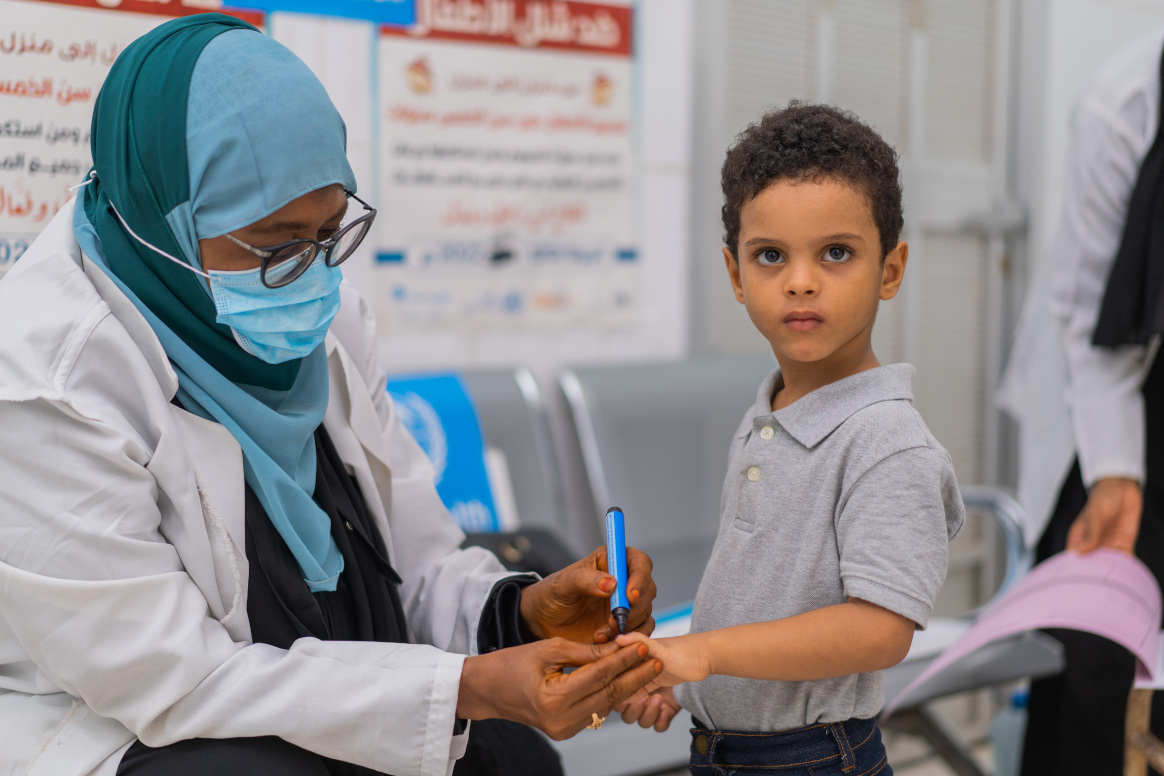In the ongoing battle against the resurgence of wild poliovirus, Nigeria’s Kano, Jigawa, and Katsina states have emerged as critical battlegrounds. The revitalization of routine immunization in these regions isn’t just a health priority but a moral obligation to protect future generations. UNICEF and partner organizations have recently launched a comprehensive campaign to reinforce immunization efforts in these states, as reported by Associate Editor ADEKUNLE YUSUF.
Amidst various global health challenges, the threat of wild poliovirus resurgence remains a persistent concern in multiple regions. In Nigeria, the states of Kano, Jigawa, and Katsina are at the forefront of this battle. The imperative to strengthen routine immunization in these areas transcends mere health necessity; it represents a moral imperative crucial to safeguarding the health of future generations.
Nigeria’s journey with polio has seen significant strides and setbacks. Once a global epicenter, the country celebrated achieving polio-free status in August 2020, following years of concerted efforts and immunization campaigns. However, recent detections of poliovirus in environmental samples have underscored the fragility of this achievement, emphasizing the urgent need to maintain robust immunization programs.
In April, a significant milestone was reached in global health efforts as UNICEF and its partners launched a vigorous campaign in collaboration with Kano, Jigawa, and Katsina states. This initiative aims to bolster routine immunization and prevent the resurgence of wild poliovirus, a disease that has plagued populations worldwide for decades. The importance of these initiatives cannot be overstated; they are pivotal not only in preventing disease but also in strengthening health systems and enhancing global health security.
In Kano, amidst the blazing April sun, Michael Banda, the Officer-in-Charge of UNICEF’s Field Office, addressed a gathering of media professionals at the Tahir Guest Palace during a Polio Media Dialogue. His message was clear and urgent: to protect Nigeria’s children through effective immunization campaigns. “Thank you all for joining us today,” Mr. Banda began, setting the tone for the critical discussion ahead. “Our primary goal is to provide insights into the polio vaccination campaign in Kano, Jigawa, and Katsina states.”
Reflecting on Nigeria’s polio-free status in 2020, Mr. Banda highlighted that this achievement marked a beginning rather than an endpoint. He underscored the gravity of the situation by revealing startling statistics: over 556,750 children in these states had not received any vaccination doses. These vulnerable children, he stressed, are at significant risk without the protection offered by vaccines against preventable diseases.
With unwavering determination, Mr. Banda rallied the audience, emphasizing the critical role of immunization in children’s survival. “Polio vaccination is crucial, but so are all routine vaccinations,” he declared passionately. “Together, we must strengthen routine immunization services.” His words resonated deeply, reinforcing the importance of comprehensive vaccination coverage to shield children not only from polio but also from a range of other preventable illnesses.
Dr. Mohammed Mahmoud, Director-General of the Kano State Primary Healthcare Management Board, provided insights into the local efforts against polio. He revealed that Kano, previously a hotspot for polio cases, has made significant strides, reducing reported cases from 80% to just seven cases this year. Dr. Mahmoud highlighted comprehensive analyses and investments in health infrastructure aimed at revitalizing immunization services across Kano’s local government areas.
Polio, caused by the highly contagious poliovirus, primarily affects children under five years old, leading to severe paralysis and, in some cases, death. Dr. Mahmoud emphasized that vaccination remains the only effective prevention measure against polio, stressing the importance of routine immunization to protect communities and future generations.
The challenges in Kano, Jigawa, and Katsina states are compounded by factors such as high population density, mobility, and vaccine hesitancy. These complexities necessitate robust immunization campaigns amidst socio-political challenges and logistical hurdles. The resurgence of polio in these states would not only endanger lives but also strain already stretched healthcare systems, diverting resources from other critical health interventions.
Addressing misinformation and vaccine hesitancy remains crucial in the fight against polio. Samuel Kaalu, UNICEF’s Communications Officer for the Kano Field Office, emphasized the media’s role in dispelling myths and building trust in immunization. He urged journalists to highlight the benefits of vaccines and the risks of vaccine refusal, emphasizing the broader public health implications of polio outbreaks.
As the dialogue concluded, the commitment to combat polio and strengthen immunization efforts resonated strongly. Dr. Ogu Enemaku, an SBC specialist at UNICEF, underscored the importance of ethical reporting amidst health crises. His guidance emphasized accountability, accuracy, and sensitivity in reporting on disease outbreaks, urging media representatives to uphold the highest ethical standards.
In conclusion, Nigeria’s efforts to prevent poliovirus resurgence are a testament to collective resolve and collaboration. With continued immunization efforts and community engagement, Nigeria aims to safeguard the health and future of its children, ensuring a polio-free generation.




